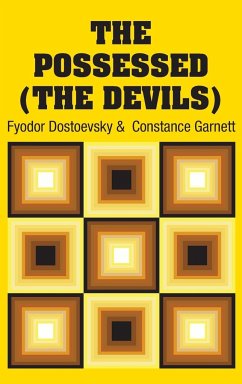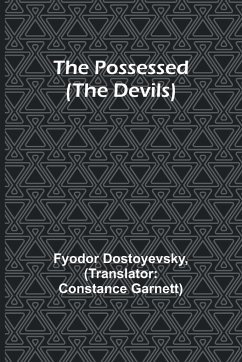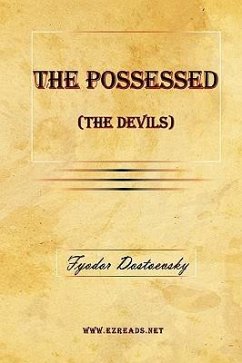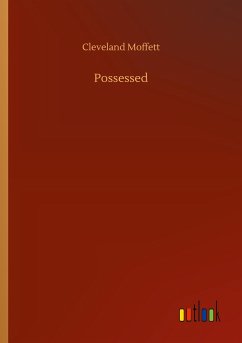
The Possessed (The Devils)
Versandkostenfrei!
Versandfertig in 1-2 Wochen
34,99 €
inkl. MwSt.

PAYBACK Punkte
17 °P sammeln!
IN UNDERTAKING to describe the recent and strange incidents in our town, till latelywrapped in uneventful obscurity, I find myself forced in absence of literary skill to beginmy story rather far back, that is to say, with certain biographical details concerning thattalented and highly-esteemed gentleman, Stepan Trofimovitch Verhovensky. I trust thatthese details may at least serve as an introduction, while my projected story itself will comelater.I will say at once that Stepan Trofimovitch had always filled a particular rôle among us, thatof the progressive patriot, so to say, and he was pass...
IN UNDERTAKING to describe the recent and strange incidents in our town, till latelywrapped in uneventful obscurity, I find myself forced in absence of literary skill to beginmy story rather far back, that is to say, with certain biographical details concerning thattalented and highly-esteemed gentleman, Stepan Trofimovitch Verhovensky. I trust thatthese details may at least serve as an introduction, while my projected story itself will comelater.I will say at once that Stepan Trofimovitch had always filled a particular rôle among us, thatof the progressive patriot, so to say, and he was passionately fond of playing the part-somuch so that I really believe he could not have existed without it. Not that I would put himon a level with an actor at a theatre, God forbid, for I really have a respect for him. Thismay all have been the effect of habit, or rather, more exactly of a generous propensity hehad from his earliest years for indulging in an agreeable day-dream in which he figured as apicturesque public character. He fondly loved, for instance, his position as a "persecuted"man and, so to speak, an "exile." There is a sort of traditional glamour about those two littlewords that fascinated him once for all and, exalting him gradually in his own opinion, raisedhim in the course of years to a lofty pedestal very gratifying to vanity. In an English satire ofthe last century, Gulliver, returning from the land of the Lilliputians where the people wereonly three or four inches high, had grown so accustomed to consider himself a giant amongthem, that as he walked along the streets of London he could not help crying out tocarriages and passers-by to be careful and get out of his way for fear he should crush them, imagining that they were little and he was still a giant. He was laughed at and abused for it, and rough coachmen even lashed at the giant with their whips. But was that just? Whatmay not be done by habit? Habit had brought Stepan Trofimovitch almost to the sameposition, but in a more innocent and inoffensive form, if one may use such expressions, forhe was a most excellent man.












